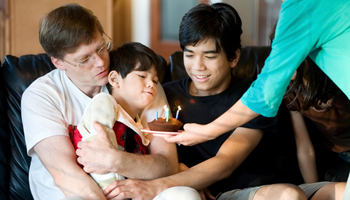
Organizations Designed for Families of Children with Disabilities
The organizations in this area of the website address the information and support needs of families. Many of them are developed and managed by parents of children with disabilities. National, state and local websites with information for families are also found here.
Support Organizations for Specific Disabilities
If you are looking for an organizations that support families with a specific disability please visit the Disability-Specific area of the website.
For information about local support groups for families try visiting County Specific Resources and find the link to your local Early Start Family Resource Center or call them. They connect families to support organizations and local groups regularly.
In the News!
Organizations for Families Resources
The California Department of Education (CDE), Special Education Division, works closely with federal- and-state-funded parent organizations to increase parent participation and collaboration between parents and educators to improve the educational system.
The web page contains a description of and listings of the regional offices throughout California of three different organizations that support families of children with disabilities with information and training to help them with the education of their children. They include: Family Empowerment Centers, Parent Training and Information Centers and California Community Parent Resource Centers. Each one has a different focus and they may overlap with each other.
Another important type of parent organization is the federally funded Family Resource Centers for families with infants and toddlers with disabilities in early intervention. Those organizations can be found on the County Specific Resources area of the MAP Website.
Senate Bill 511, Family Empowerment Centers
The Family Empowerment Centers (FECs) provide training and information to families of children and young adults with disabilities, between the ages of 3 and 22. These parent-led nonprofit organizations offer specialized training, peer-to-peer support, information and referral services. They aim to assist parents to better understand their child’s educational and developmental needs, effectively communicate with service providers, serve as a resource for the individual education plan process, participate in school reform and improvement activities, promote alternative dispute resolution, and support positive relationships between parents and professionals. Services available through each FEC vary based on the needs of the community.
Parent Training and Information Center
Each Parent Training and Information Center (PTIC) is a parent-directed non-profit 501(c)(3) organization funded and managed by the Office of Special Education Programs at the U.S. Department of Education, under the Individuals with Disabilities Education Act (IDEA). The California Department of Education coordinates with the PTICs on initiatives and opportunities for parent support statewide.
The PTICs provide a variety of direct services for children and youth with disabilities, families, professionals, and other organizations that support them. Some of the activities include:
- Working with families of infants, toddlers, children, and youth with disabilities, birth to twenty-six
- Helping parents participate effectively in their children’s education and development
- Partnering with professionals and policy makers to improve outcomes for all children with disabilities
California Community Parent Resource Centers
Background
The Community Parent Resource Center (CPRC), are managed and funded by the Office of Special Education Programs (OSEP) and, as described in 20 United States Code 1472, will help ensure that underserved parents of children, ages birth through twenty-six with disabilities, including low-income parents, parents of limited English-proficient children, and parents with disabilities, have the training and information the parents need to enable the parents to participate effectively in helping their children with disabilities.
Each CPRC shall:
- Provide training and information that meets the training and information needs of parents of children with disabilities,
- Carry out the activities required of PTICs, and
- Be designed to meet the specific needs of families who experience significant isolation from available sources of information and support.
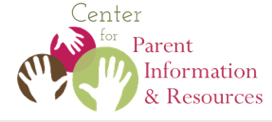
- Resources Especially for Child Care Providers and Preschools June 2017
- About Specific Disabilities June 2017
- Babies and Toddlers Oct 2017
- New to Disability?
- For Professionals New to Disability
- 10 Basic Steps in Special Education (age 3 to 21)
-
Additional Resources from CPIR
- Trauma Informed Resource Collection Dec 2018
- Tools That Empower Spanish Speaking Families
- Index to Resources in Spanish for English speakers and link to the index that is entirely in Spanish
- A Resource Collection on Positive Behavior Supports, Functional Behavioral Assessment, and School Discipline Nov 2017 Welcome to this collection of resources on positive behavior supports and discipline of children with disabilities. The collection has been developed by a team of Parent Centers, specifically for the Parent Center network to use in their work supporting and empowering parents and families of children with disabilities.
- Rare Disorders: Disability Fact Sheet Published: June 2017 Roughly 7,000 rare diseases/disorders have been identified as affecting the human race. Because they are rare, it can be a real challenge for a person to be accurately diagnosed. Finding effective treatments, especially medicine, can also be a challenge—and for the same reason. Rareness. If you have a rare disease, know someone who does, or work with people who might, here’s a core of resources we hope are helpful.
- Parent Technical Assistance Centers Parent centers work to improve educational outcomes for children and youth with all disabilities (emotional, learning, mental, and physical). There are ten parent centers in California.
- Fact Sheet on the Rights of Immigrant Children
- NICHCY's New Home Sept 2014 September 30, 2014 was NICHCY's last day after more than 20 years of service. Happily, most of NICHCY's resources will stay in their new home at the Center for Parent Information and Resources.
- Developing culturally Responsive Approaches to Serving Diverse Populations: A Resource Guide for Community-Based Organizations Mar 2017 This 30-page resource guide, produced by the National Research Center on Hispanic Children and Families, identifies easily accessible resources on cultural competency that CBOs can use to become more responsive to the needs of their targeted populations, and to help attract funds to support their important work.
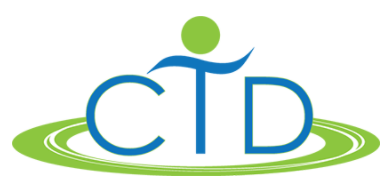
- CTD Library
- Isabel Needs Assistive Technology (Video)
In this story, you'll meet Marta, the mother of Isabel, a young girl with fine motor and learning disabilities. The video introduces viewers to assistive technology (AT) and takes them through an Individualized Education Program (IEP) meeting during which AT is considered. This video is captioned in English and is "described" as well. FCTD and Dicapta invite you to view and share this video with your colleagues and the families you serve. This video was originally produced as a Spanish-language resource. Voice-over and captioning were added to provide access to larger audience.
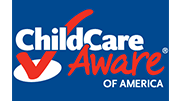 Child Care Aware is a nonprofit initiative committed to helping parents find the best information on locating quality child care and child care resources in their community. It does this by raising visibility for local child care resource and referral agencies nationwide, and by connecting parents with the local agencies best equipped to serve their needs. The site has links to Child Care Resource and Referral organizations (CCR&Rs), local experts on child care that provide parents with many services, including referrals to local child care providers.
Child Care Aware is a nonprofit initiative committed to helping parents find the best information on locating quality child care and child care resources in their community. It does this by raising visibility for local child care resource and referral agencies nationwide, and by connecting parents with the local agencies best equipped to serve their needs. The site has links to Child Care Resource and Referral organizations (CCR&Rs), local experts on child care that provide parents with many services, including referrals to local child care providers.
- "In the States" Interactive Map 2012 "In the States" Interactive Map includes information about child care licensing in each state, a link to the state page from Child Care Aware of America's reports reviewing child care center and family child care home policies in every state, and a link to Child Care Aware of America's one-page fact sheet with child care information related to the demographics in the state, the price of child care, and other data related to child care.
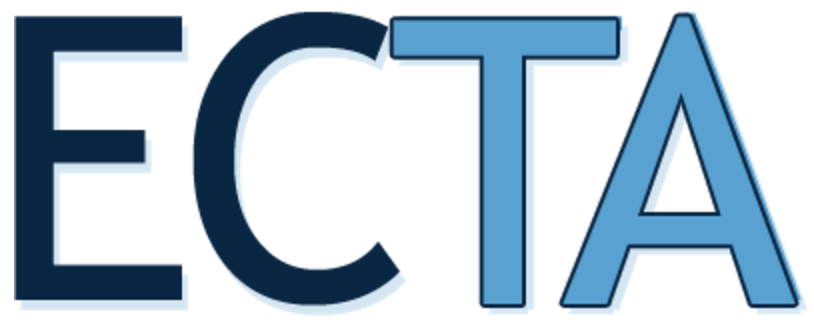
- National Early Childhood Inclusion Indicators Initiative May 2019 The initiative is co-led by the Early Childhood Technical Assistance (ECTA) Center and the National Center for Pyramid Model Innovations (NCPMI) and includes partners from across the early care and education system. ECTA Center is leading the development of the state and local program leadership indicators and the NCPMI is leading the development of the classroom indicators. Santa Clara County Office of Education is one of the stakeholders.
- Your Child’s Move from Preschool Special Education to Kindergarten (PDF)
- Local District Preschool Inclusion Self-Assessment (PDF) Feb 2018
-
Additional Resources from Early Childhood Technical Assistance Center
- State Early Childhood Inclusion Self-Assessment (PDF) July 2017
- Pennsylvania Preschool Inclusion Self-Evaluation Tool
- ECTA Center for Families to help families understand their right under the Individuals with Disabilities Education Act (IDEA), connect with other families and find high quality resources related to caring for infants, toddlers and young children with disabilities.
- Recursos en Español (Resources in Spanish)
- Inclusion in Least Restrictive Environments
Designed for the administrators of state agencies responsible for services to young children and their families, including child care, Head Start, education, and early intervention. It has compiled information for administrators who are challenged with developing policies and programs that lead to inclusive comprehensive and coordinated services for all young children, ages birth to 8 years, and their families.
- Preschool Inclusion Finance Toolkit 2017 (PDF)
An update of ECTA Center's resource that addresses updated guidance in the Dear Colleague Letter on Preschool Least Restrictive Environments published earlier this year. Worksheets included in this toolkit:
- Preschool Inclusion Finance Toolkit 2017 (PDF)
- Early Intervention Program for Infants and Toddlers with Disabilities (Part C of IDEA) Provides a listing by state of the websites of the organizations responsible for early intervention for babies with developmental disabilities
- Developing High Quality Functional IFSP and IEP Goals –Training Package This training package has been developed collaboratively with staff from the ECTA Center and WRRC in response to the need expressed from state and local providers to have specific information and resources about developing Individualized Family Service Plan (IFSP) outcomes and Individualized Education Plan (IEP) goals. First introduced in September 2012, this revised training package includes: an introductory video; a set of six fully scripted PowerPoint presentations; handouts, activities and supplemental materials; and how states have used and adapted the materials.
- Inclusion in Least Restrictive Environments
- Position Statements on Inclusion from National Organizations
- Research and Studies on Inclusion
- Personnel Development for Inclusion
- Recommended Practices
The OSEP funded Early Childhood Technical Assistance Center (ECTA) has launched a campaign to bring widespread awareness about the DEC Recommended Practices (RPs). The latest ECTA resources to support implementation of the RPs include Performance Checklists for practitioners as well as Practice Guides for Practitioners and Practice Guides for Families. These resources were highlighted on a recent national webinar which was recorded and can be accessed in aRPy's Corner of the ECTA web site. - ECTA Webinar Series: Upcoming and Archived:
- National Inclusion Webinar February 2016: Preschool Inclusion: What's the Evidence, What Gets in the Way, and What do High-Quality Programs Look Like?
- Early Childhood Training Modules from the IRIS Center March - April 2016
- Session 1: Dual Language Learners with Disabilities: Supporting Young Children in the Classroom
- Session 2: Early Childhood Environments: Designing Effective Classrooms Module & Website Tour
- A Parent’s Guide to Successful Transition to Kindergarten (for kids with disabilities) Nov 2018 This blog provides tips for parents of children with special needs for how to prepare for transition to kindergarten.
- Exceptional Blog which provides real help and hope through personal stories;
- It’s Not Selfish: 5 Self-Care Tips for the Caregiver
- Comprehensive Special Needs Resource Directory which links readers to organizations and entities matching their needs, interests and location;
- The Law of the Land in the 6th Circuit Makes Education Better for All The Sixth Circuit’s opinion affirmed the district court decision finding that the school district violated IDEA when it demanded that a second-grade student with Down syndrome be removed from his general education classroom in his neighborhood school to a segregated special education classroom comprised solely of children with disabilities at another school.
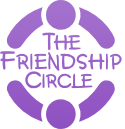
-
Additional Resources from Friendship Circle
- Friendship Circle Blog
- 10 Things You Should Know About Feeding Therapy Whether working with children with special needs such as Autism Spectrum Disorders (ASD), Down syndrome or Sensory Processing Disorder (SPD) or with a child coined the "picky eater" of the family, the ultimate goal of feeding therapy is to establish regular, nutritious family meals that are joyful for the entire family. Here you'll find the top 10 things you should know before starting your family begins feeding therapy.
- 23 Ways to Communicate with a Nonverbal Child People with little or no speech still have the same communication needs as the rest of us. We may just have to work a bit harder to find a communication strategy that works.
- 33 Autism Resources You Need to Read
- 26 Sensory Integration Tools for Meltdown Management
- The Latest Number in Autism is 1 in 45: What Does It Mean?
- The Special Needs Calendar of 2016: A Year of Awareness (Downloadable calendar) (PDF)
- 5 Reasons Speech and Language Therapy is Crucial for a Nonverbal Child
- 4 Tips to Facilitate Friendships in the Inclusive Classroom
- 5 Excellent Storytelling Apps for Kids with Special Needs
Parents want to raise kind, caring, courageous children but few feel like they know precisely how to do that. In order to help bridge the gap between research and the daily lives of parents, the Greater Good Science Center, supported by the John Templeton Foundation, launched an initiative with three components to help parents raise kids of high character who treat others with compassion and respect.
The GGSC has developed a range of new resources sharing with parents the top research and best practices on raising children who are supportive of others and committed to something bigger than themselves. This includes publishing dozens of new articles for parents on Greater Good, creating several practical exercises for parents to try with their kids on Greater Good in Action, and producing a series of short videos designed for mobile devices and social media to reach busy parents on-the-go.
- Dr. Dan Siegel , award winning author and lecturer. Dr. Siegel's unique ability to make complicated scientific concepts easy to understand and exciting has led him to be invited to address diverse local, national and international groups of mental health professionals, neuroscientists, corporate leaders, educators, parents, public administrators, healthcare providers, policy-makers, and clergy. Or explore the various topics under:
- Special Needs
- Top Tips for How to Raise a Happy Child
KIT stands for Kids Included Together, a registered 501(c)(3) non-profit organization that was founded in San Diego, California in 1997. The mission of Kids Included Together is to support recreational, child development, and youth development programs that include children with and without disabilities. KIT's goals are to enrich the lives of all who participate and to increase understanding and acceptance of disabilities as a natural part of life. We invite you to explore our site and learn more about our work in San Diego County and across the nation.
- Summer Camp Means Fun for All: How to Create a More Inclusive Camp May 20, 2022
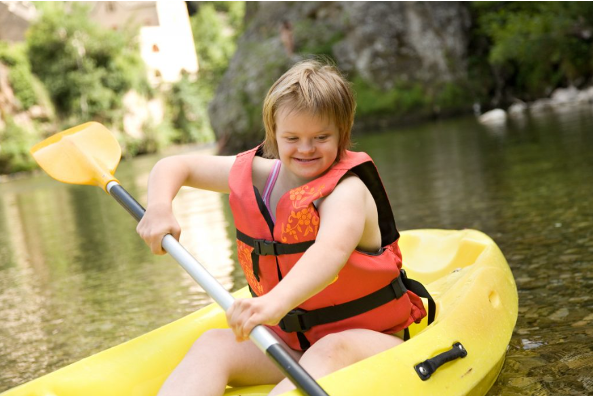 Kids Included Together (KIT) says, “Pinpointing exactly what it means and looks like to be inclusive can be tough because creating a sense of belonging for each child will differ from person to person and camp to camp. But, that’s really what it is – creating a sense of belonging for each camper.”
“So, where do you start and how do you know if you’ve gotten there? Well, providing a meaningful experience for every camper may look varied, but it will be rooted in a few universal principles.” This article provides helpful considerations to add to KIT’s inclusion checklist.
Kids Included Together (KIT) says, “Pinpointing exactly what it means and looks like to be inclusive can be tough because creating a sense of belonging for each child will differ from person to person and camp to camp. But, that’s really what it is – creating a sense of belonging for each camper.”
“So, where do you start and how do you know if you’ve gotten there? Well, providing a meaningful experience for every camper may look varied, but it will be rooted in a few universal principles.” This article provides helpful considerations to add to KIT’s inclusion checklist.
- Additional Resources from KIT
- KIT: Top 5 Trends in Disability Inclusion 2018 Sept 2018 Kids Included Together (KIT) is leading the field in disability inclusion and behavior support through work with over 450 organizations in the United States, Europe, Asia, and Australia. Using research, media, and recent KIT data from 625 training sessions, 100 online courses, 325 onsite visits, and 1,752 support center calls, we have identified the top 5 trends in childhood disability inclusion. In 2018, we can exploit these trends to help increase meaningful inclusion of children with disabilities in schools and communities.
- Inclusion Resources: Videos, Tip Sheets, Checklists, Guidebooks and Websites Sept 2018
- Who We Are-Our Work: Publications Sept 2018
- What is Inclusion? (PDF) Sept 2018
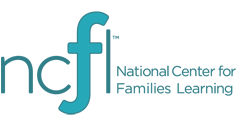
- What Works: Early Literacy Initiative-Free materials and videos to support early literacy in English and Spanish
- Bilingual Resources: Free videos and materials in English and Spanish
- Foto-Novelas NCFL presents an exciting way for Spanish-speaking parents to get more involved in their child's education at school with a set of bilingual resources, including Foto-Novelas.
- En Camino A comprehensive toolkit of educational resources that support Spanish-speaking families' aspirations for education.

- Publications
- Translated Content PACER offers bilingual workshops, individual assistance and translated publications focusing on issues facing families from diverse backgrounds. When you call PACER you may ask to speak with a multicultural staff person. You will be able to discuss your concerns and explore choices with an understanding parent advocate who also has a child with special needs.
- The Four Stages of Adaptation: Stage 1 Surviving
The Four Stages of Adaptation model was developed by Dr. Nancy Miller, a psychotherapist and social worker. She worked with four moms over a period of five years and distilled their experiences into the book Nobody's Perfect: Living and Growing with Children Who Have Special Needs. The model came from conversations with the moms, experiences working with families, and the writings of many parents and professionals.
On the Raising Children website, parents will find reliable and scientifically validated information and resources to support them in the day-to-day work of raising children and looking after their own needs. The website is growing all the time and covers a broad range of up-to-date parenting topics.
All content on the website has passed through a rigorous quality assessment process developed by the Raising Children Network (RCN) team and the RCN Scientific Advisory Board. The Board is made up of some of Australia's pre-eminent experts in child health and development and oversees the website's content development.
The quality assessment process ensures that each piece of website content is approved by at least two independent experts for accuracy and validity. A professional web editing team also assesses each piece on its accessibility and communication values to ensure the information is easy to understand, remember and act on.
- Children with Autism Spectrum Disorder Dec 2019
- Disability: Videos Dec 2019
- Baby Karaoke App free! Our popular Baby Karaoke is available as a free smartphone app! With the mobile version of Baby Karaoke, you can sing with your child in the car, on holidays, waiting at the dentist, or under the blanket on a rainy day.
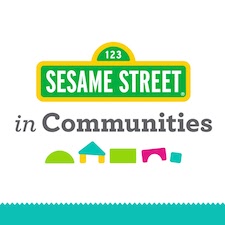
The State Council on Developmental Disabilities (SCDD) is established by state and federal law as an independent state agency to ensure that people with developmental disabilities and their families receive the services and supports they need.
Consumers know best what supports and services they need to live independently and to actively participate in their communities. Through advocacy, capacity building and systemic change, SCDD works to achieve a consumer and family-based system of individualized services, supports, and other assistance.
- The Difference Between Tantrums and Sensory Meltdowns Mar 2019 Many people think the words “tantrum” and “meltdown” mean the same thing. And they can look very similar when you see a child in the middle of having one. But for kids who have sensory processing issues or who lack self-control, a meltdown is very different from a tantrum. Knowing the differences can help you learn how to respond in a way that better supports your child.
- One Page Template To Help a Teacher Get to Know Your Child (PDF) Sept 2018
- Self-Awareness Worksheet for Kids (PDF) Sept 2018
- Five Benefits of Inclusion Classrooms July 2018
- Free publications From this page, download free publications about IEPs, special education, transition planning, reading, children's mental health, harassment, high-stakes testing, retention and social promotion, zero tolerance and discipline. The contents of this page change often as we add new publications.
- Back to School Survival Guide (for Parents of Kids with Special Needs)